Hey, loves! If, like me, you’re looking for the best home propane generator, then you’ll want to keep reading. Not only have I already been down the road you’re just starting on, but I’ve put a ton of research. I had to figure out the very best options for both price and efficiency. Plus, I needed a generator that would automatically turn on in a power outage when we weren’t at the cabin. So, let’s say I know something about a g good generator.
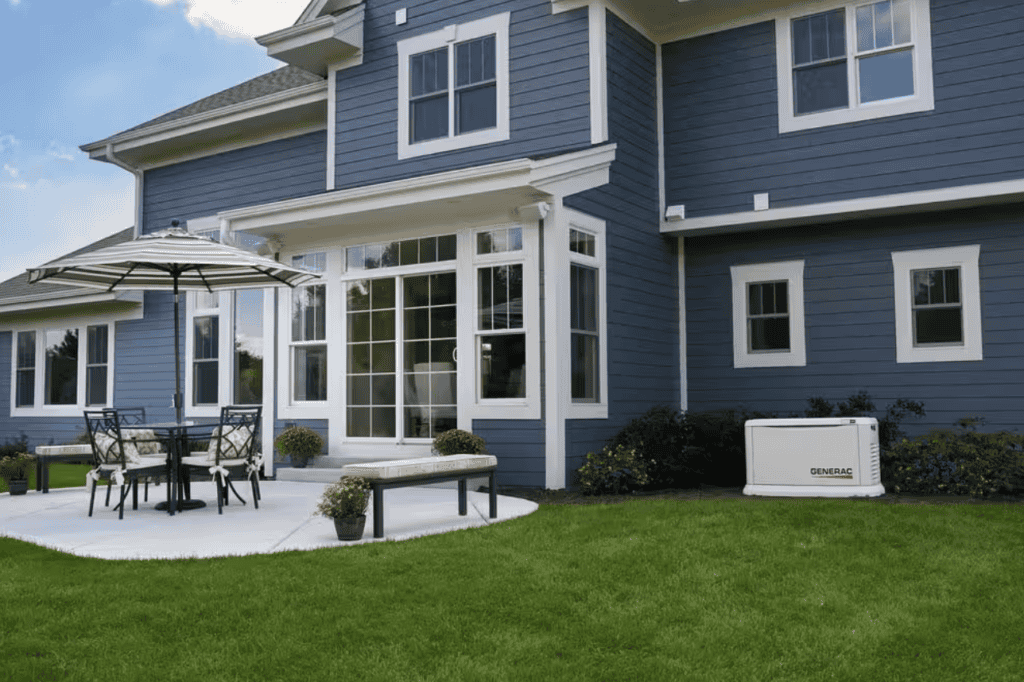
I am obsessed with the make and model I ended up installing. For a powerful generator that hooks up to propane to power your electricity, go with the 14kw Generac generator specs. They can’t be beaten.
It’s critical that our generator be able to powero our home appliances for at least 10 day. This is a common time to be without power in Northern California. We also wanted more than just the smooth operation of sensitive electronics and essential lighting. We also needed to think about the future hot tub, irrigation system, and firepit. So, it had to be a powerful generator.
Any of this sound familiar? Running into similar issues, have the same concerns, or are also on the hunt for whole-house generators? Read on.
How the 14kw Generac Generator Specs Convinced Me
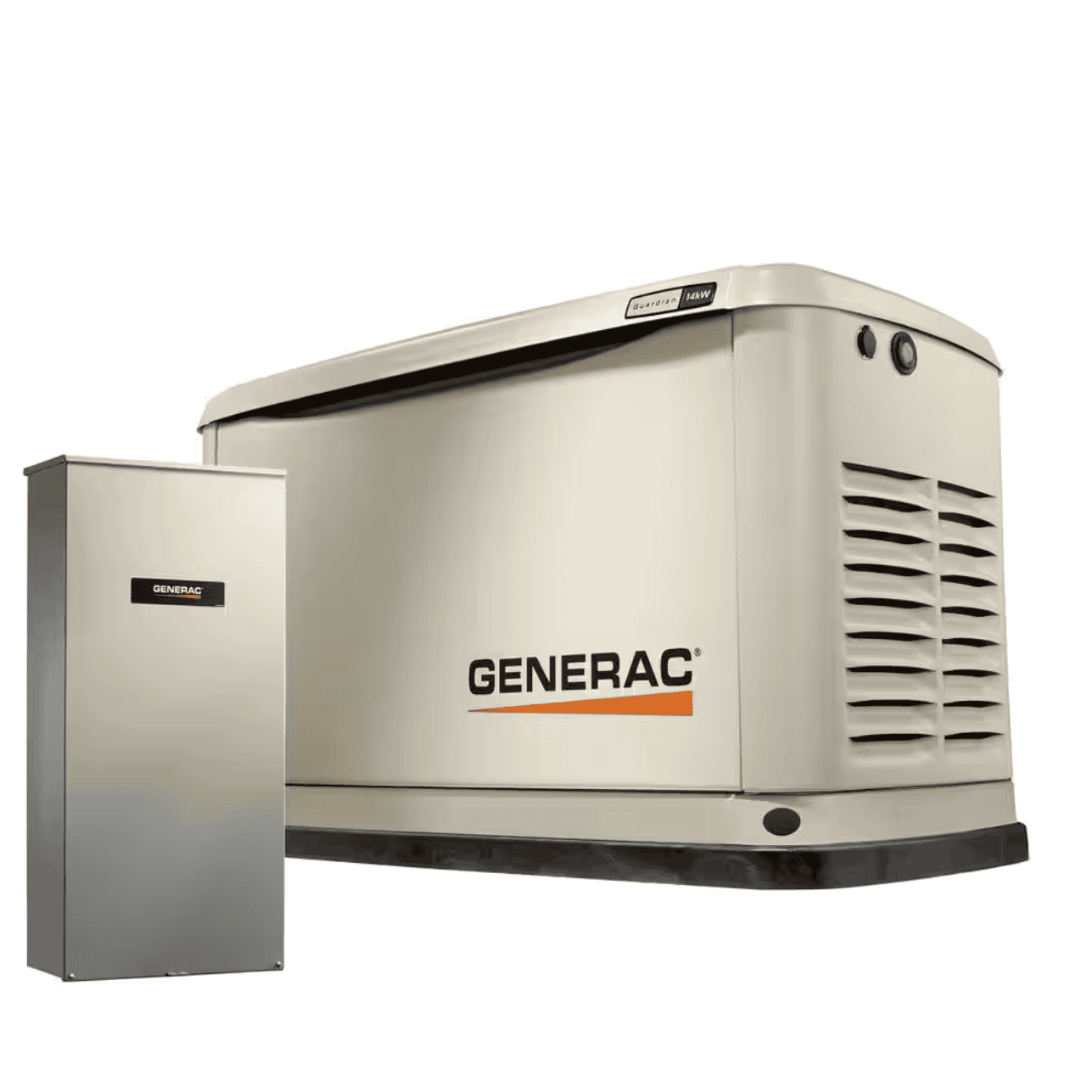
I looked at plenty of different options while shopping, but the 14kw Generac generator specs really stood out to me. The machine was truly the Escalade of standby generators. It had everything we needed to cover our needs, from shorter-term tasks like lighting to longer-term issues such as heating or cooling the cabin.
Powered by Generac’s G-Force engine, and offering a bunch of premium features, these Generac generators claim to offer best-in-class power quality at a reasonable price. The most important part of the 14kw Generac generator specs, though, was the transfer switch.
This switch will automatically engage the pressure-lubricated engine when the power goes out, ensuring we have uninterrupted power throughout fire season. Sometimes, battery-powered solutions will be enough, but many electronic devices don’t take well to suddenly losing power. The switch helps prevent this, ensuring our devices are protected.
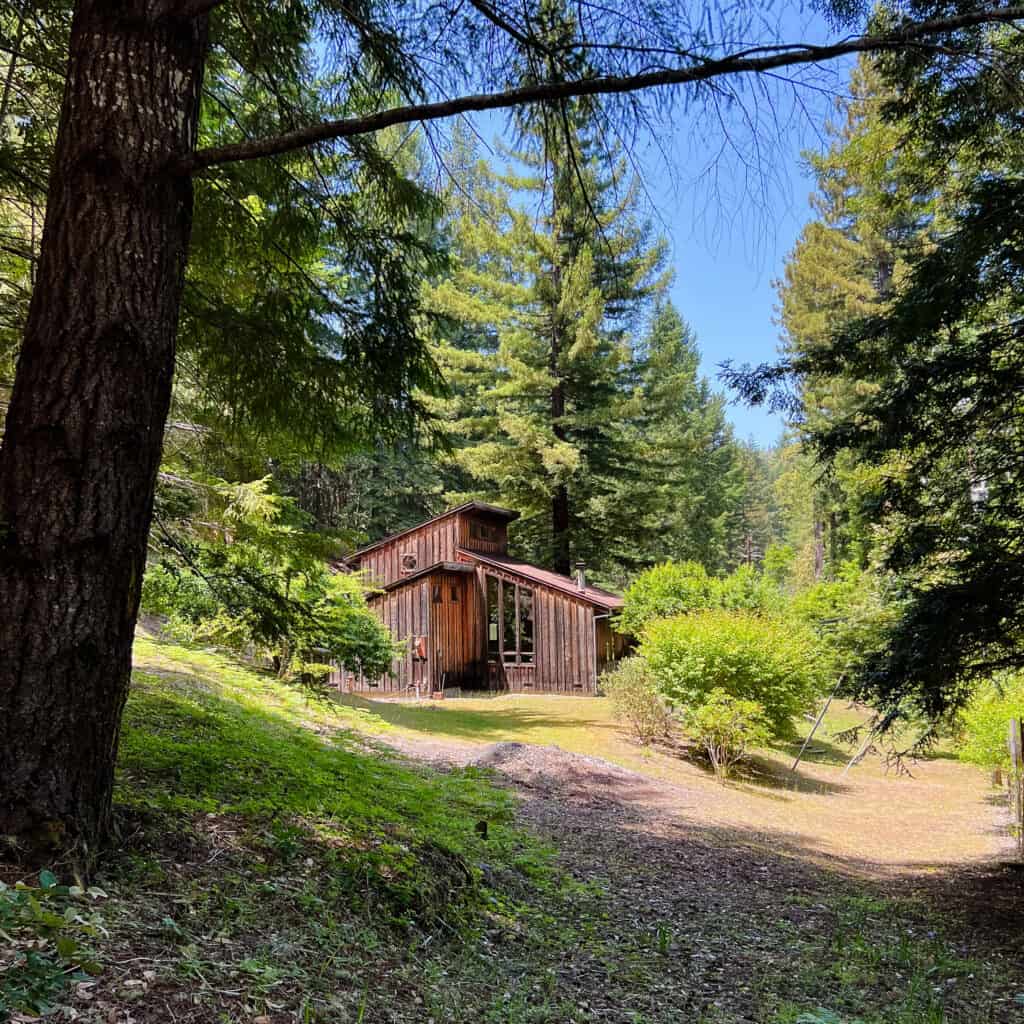
Paired with our new electric box, this generator is the perfect fit for the job. Aside from the switch, it offers a bunch of other premium features like remote monitoring, corrosion-resistant aluminum with powder-coated finish for its durable all-aluminum enclosures, a 14kW competitive engine, and a self-test mode. Add in the five-year limited warranty and they had me convinced!
Well, all of these features made this Generac unit the perfect fit for our home, but that doesn’t necessarily mean it will be the right one for you. In many situations, it could actually be overkill, especially if your outages tend to be brief and infrequent.
Now that you know which one I’ve chosen, let’s move on to the things you should consider when shopping. Whether you’re after the best home propane generator, a portable unit, or something else entirely, these are all important factors you’ll want to keep in mind while shopping.
Portable vs. Standby Generators

In our case, we were shopping specifically for a backup generator for a remote location (i.e., our cabin). Since it’s a bit out of the way, we needed something that could survive nearly any weather conditions, was relatively easy to maintain, and could provide years of reliable service. Basically, if businesses wouldn’t rely on it for power then neither would we.
With that in mind, it was obvious that we needed a standby generator. These units are permanently installed on the outside of your building, generally use a bit more fuel, produce a lot more power, and tend to be quite expensive.
If you’re looking for the best home propane generator then you’ll probably want a standby unit, but there are quite a few models that run off of a natural gas fuel supply as well.

But what if you don’t have space for a propane tank, aim to use less fuel, and can deal with having slightly less power for a short amount of time? In that case, a portable unit might fit your needs a bit better.
The main downside of portable models is that they can’t provide as much power as a standby natural gas or liquid propane generator. They also need to be manually started when the power runs out, meaning sensitive electronics—like your computer—won’t be protected.
On the plus side, these things don’t use that much propane or natural gas. If either one is particularly expensive in your area, you’ll be happy to know that purchasing a dual-fuel generator might help reduce your operating costs.
Things to Consider When Shopping for the Best Home Propane Generator
Alright, now that you know the main differences between portable and standby generators, let’s go over the most important factors you’ll want to bear in mind while shopping. There are quite a few, but don’t worry. With this list in hand, you’re sure to end up with the right one!
Space Requirements

For obvious reasons, generators can’t be used inside. As such, you’ll need to ensure that you have adequate space outside to store and run them. Sizes for these devices can vary quite a bit. Some smaller units may only be three feet long, while larger units can often exceed five feet in length.
Generally, the bigger the size, the more power your unit will output. So, not only do you need to ensure your model can output enough power, but you also have to make sure you have space for the generator—along with meeting the clearance requirements—for a successful installation.
Fuel Source
This one will probably be the most polarizing of the factors to consider. You have plenty of options, such as solar generators that use solar panels, diesel generators, a propane standby generator, natural gas model, or even a dual fuel generator.
Solar brings its own unique challenges to the table that aren’t present when using a generator that relies on an internal combustion engine for power. If you want to go solar then I’d recommend doing a lot of research, as there are a bunch of benefits, drawbacks, and incentives to look into.
For combustion generators, there are also differences to be aware of. Propane and natural gas units tend to be more eco-friendly, but they require being hooked up to your home’s gas system. Gasoline units will require a fuel stabilizer, are generally loud, and might not be well-equipped for running anything beyond your plumbing and other basic necessities.
Like with solar units, I’d suggest looking into the drawbacks and advantages of each before settling on any particular model.
Wattage
You could have the best home propane generator in the world, but if it can’t meet the wattage needs of your home then it will basically be useless. It can be a bit time-consuming to figure out your total wattage needs. Still, if you make a list of the things around your home you’ll need to power then you should be able to figure it out without too much trouble.
There are many high-wattage items that require lots of watts all the time, but many others will only draw a high wattage on startup. Since a portable unit generally can’t produce a high-wattage, you’ll really only want to rely on small gas generators for keeping the basics up and running. Otherwise, your entire home could get taken out by a simple power surge.
If your needs exceed 8,000 watts of maximum motor wattage then a standby unit—complete with automatic backup power—might be the better choice.
Battery Life
Unless you’ve gone with a solar-powered model, battery life probably won’t be the first thing on your mind when shopping for a backup power solution. Still, it’s a vital part of your setup, even if the battery is only really used to start the machine.
For solar units, having a way to monitor your battery status is just as important as having a fuel gauge, as this will let you know the approximate run time you have left. It’s a good choice for combustion units as well, though, as you’ll need the battery for features like automatic start or remote monitoring.
Maintenance
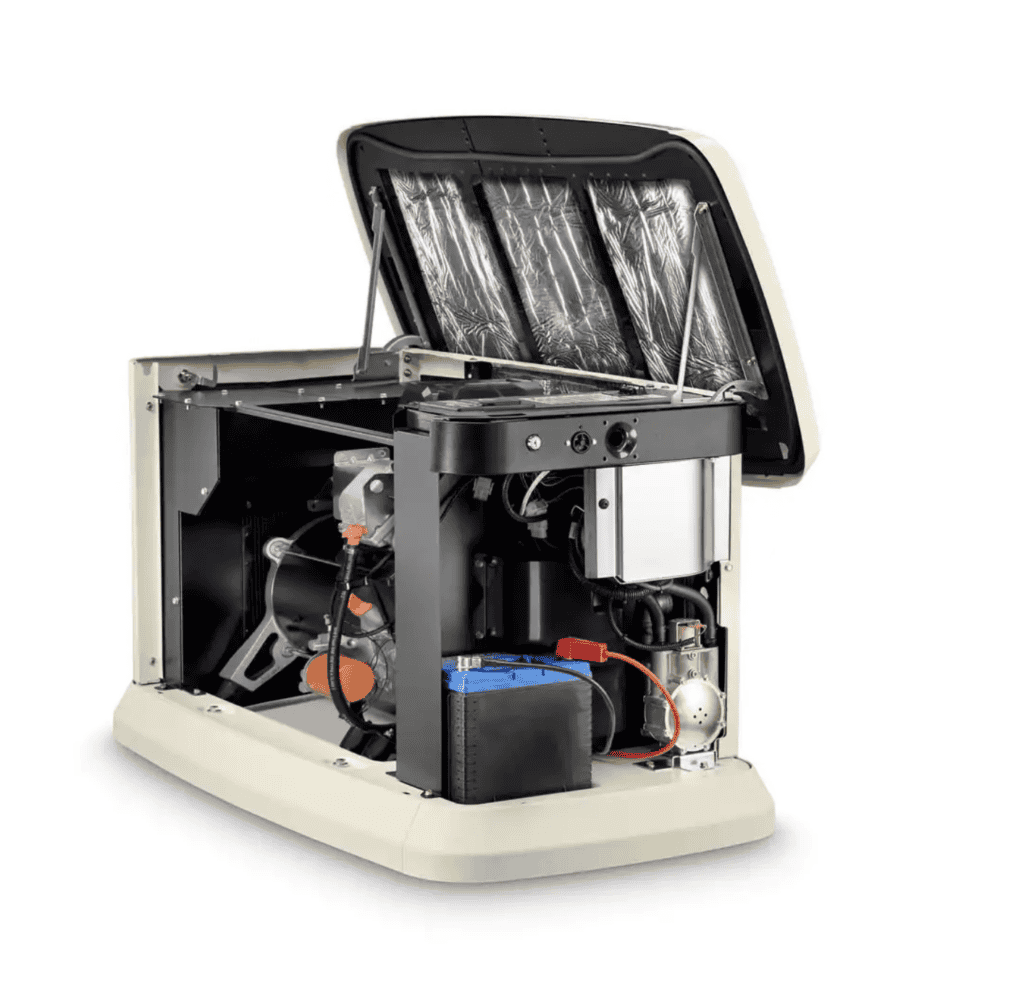
Like power tools, all generators will require routine maintenance Of course, some will need more than others, so you’ll want to make sure that the maintenance schedule of your particular unit is sustainable.
Some higher-end models may give you maintenance alerts, whereas more basic options will just give you a printed sheet. Either way, it’s important to ensure that the status of your generator is always up to par for when an outage does occur. Otherwise, you may be left with the lights off regardless!
Noise Level
You might think that all the best generators would be nearly silent, but unfortunately, that’s actually far from the case. The noise level will vary between generators, with 65-72 dB being the sweet spot for many. For context, a normal conversation is about 60 dB (decibels); an electric lawn mower is about 75 dB.
While this shouldn’t pose too much of an issue for you, the decibel rating is still one of the more important features to look at. Depending on the time of day, having a loud unit running outside could cause trouble.
Transfer Switch
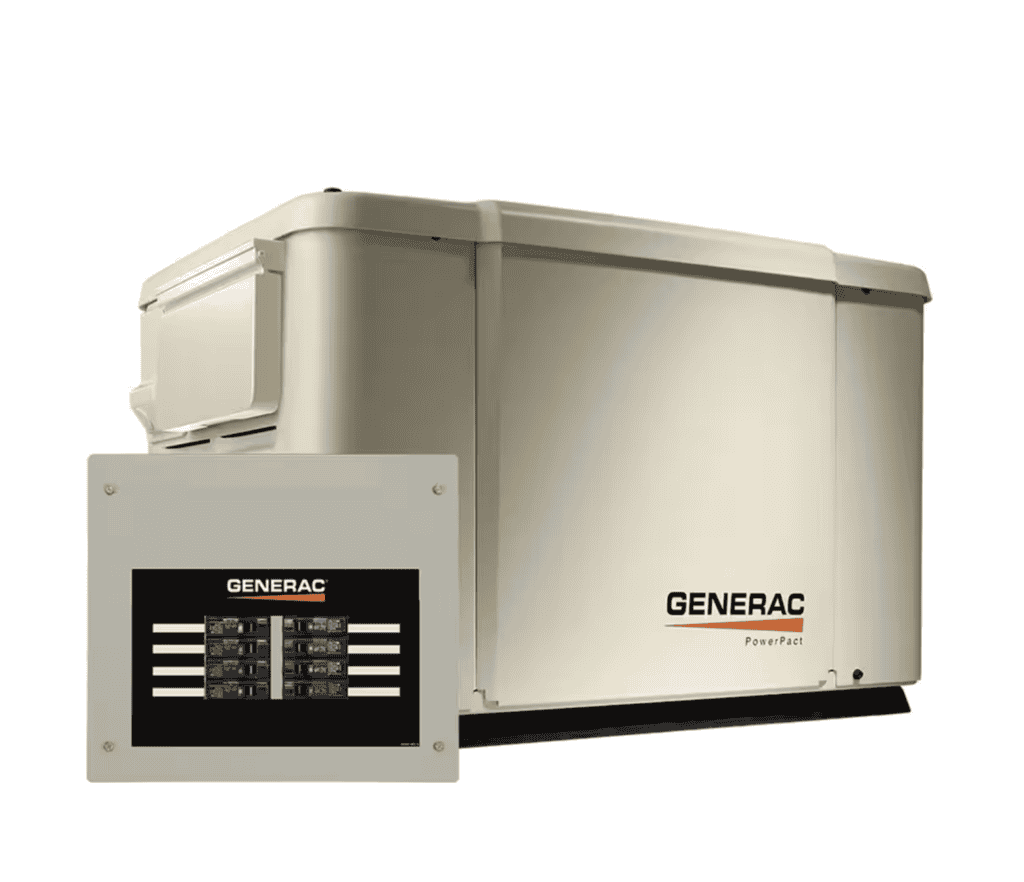
In my opinion, you simply can’t have the best home propane generator with an automatic transfer switch! Having a large fuel tank with enough fuel to last for hours at a time is important, but if you can’t turn the power back on until you get home then all of your sensitive electronics are at risk.
Paired with an automatic start, a transfer switch will make sure that the power never goes out (even when the power grid fails). As long as you keep your machine in top operating condition, all of your perishables, valuable electronics, and essential home systems will stay safe during outages.
Other Facts & Features You’ll Want in the Best Home Propane Generator
Well, that concludes what I would consider to be the bare minimum for something to qualify as possibly the best home propane generator. Still, there are other things you might want to keep an eye out for. Here are a few examples.
Oh, and don’t forget having access to a customer support team. Having access to convenient assistance 24/7 is great, so I’d recommend searching for that—and a reliable warranty–if you can.
Ease of Use
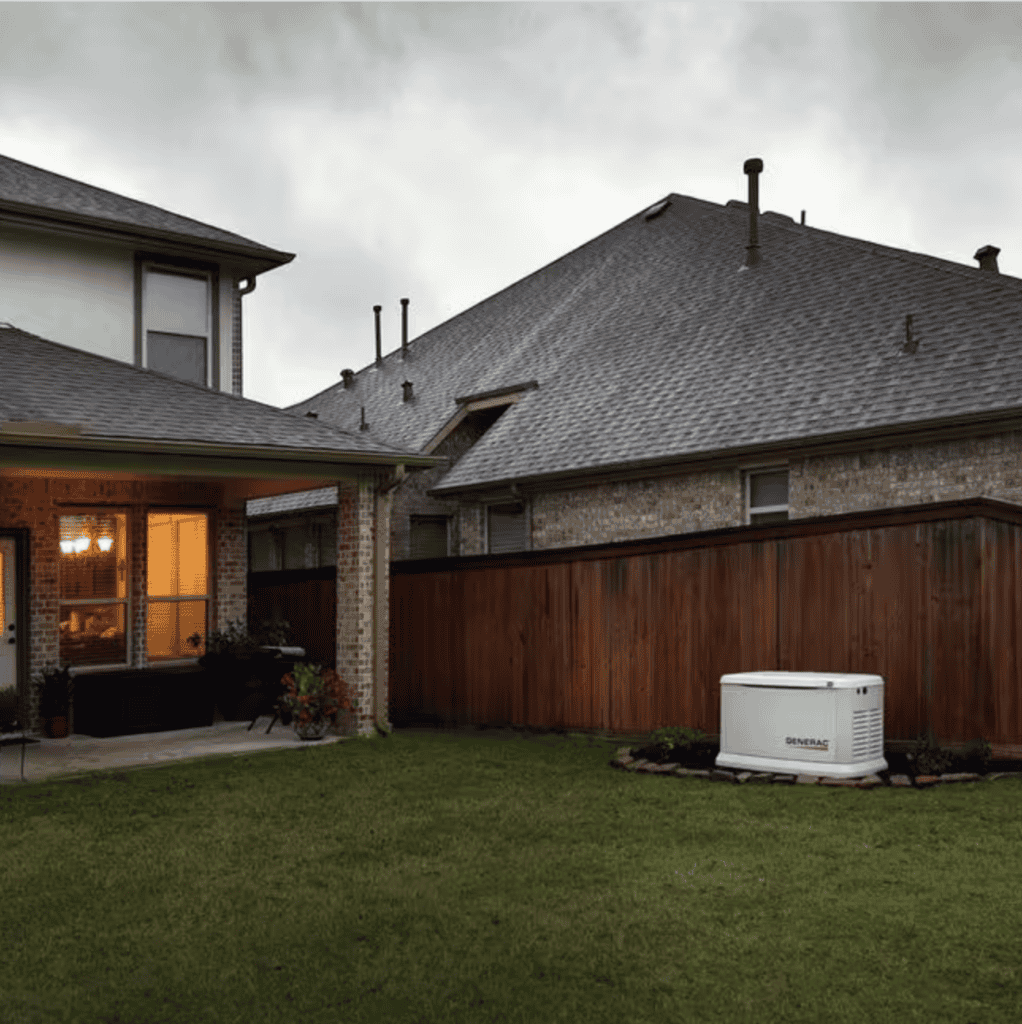
Having user-friendly controls is definitely a major bonus when it comes to your own generator. Some models offer benefits such as having a multilingual LCD display, offering electric start, or having a self-test mode, which starts a lower RPM test to let you know if your machine needs maintenance.
With easy-to-understand indicators, digital displays, built-in diagnostic tools, and must-have gauges, your experience using a generator will be much easier. After all, something as simple as cooking with the power off doesn’t need to be more complicated than it already is.
Remote Monitoring
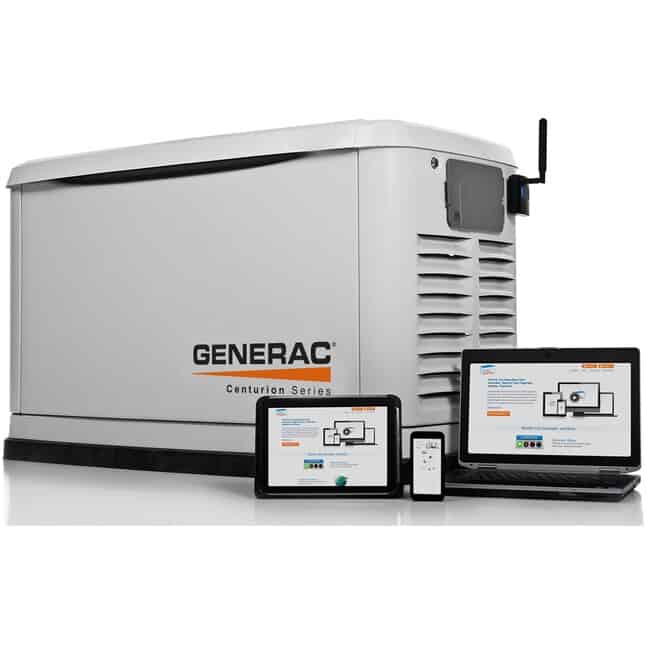
This is another must-have for the best home propane generator. Being able to access information via remote monitoring is great, as you can stay up-to-date on your generator status even when you’re out and about. While I think we’re all getting tired of having to install app after app on our mobile devices, this is one that can at least justify why you’d want to install it.
Aside from displaying your current operating status, some remote systems even allow you to remote start, remote shutdown, and track power data, helping you take advantage of your generator more efficiently moving forward.
Warranty
Most generators will offer some sort of warranty, whether you’re buying whole house generators or a portable unit. Three to five years seems to be the standard, although you’ll want to check the specifics for your particular model.
Another good thing to keep an eye out for is service dealer support. Whereas cheaper items like air conditioners can be replaced without too much fuss, generators are quite expensive items. As such, you’ll not only want the warranty to cover the repairs, but the technicians to complete them nearby as well.
Engine Hour Meter
The rigors of generator use can take quite a toll on the machine, which is why keeping track of the track maintenance intervals is so essential. The best home propane generator will have an engine hour meter, which helps you know when to change the oil, switch out a filter, and perform other routine maintenance tasks.
Depending on the model, you might also receive this vital information via a remote monitoring system, eliminating the need to check it yourself.
Electric Start
Since our unit will turn on automatically, you can bet your bottom it has electric start! However, if you’re looking at a portable unit then having electric start isn’t always a guarantee.
If you don’t anticipate needing to use your generator often then forgoing electric start might be an easy way to save money. That said, if you want it to kick in automatically or even just don’t want to put in the extra work, I’d personally say that getting the electric start feature is probably worth it.
Carbon Monoxide Sensor
Unfortunately, it happens every year. Someone makes the mistake of running a generator indoors, and often, they end up paying a steep price for it. Carbon monoxide (CO) poisoning is no joke, so having a carbon monoxide sensor is a must-have in my book.
Unless your fuel source is solar, you can easily fill the entire house with deadly gas using a combustion generator if you decide to run it indoors. Obviously, avoid doing this. Still, if you’re running it close to the house, it is possible for some CO to make its way indoors, which is why having a CO detector is a good idea.
Wrapping Up
I’ve told you which models I thought were the best home generators, as well as sharing the x for me. Hopefully, having all of this information in one place will make your shopping experience a bit easier (so you don’t have to do as much research as I did).
I know – there’s quite a lot of information to go over. Still, as long as you take it slow, read reviews, and look over everything on the product page, finding the right generator for you should be easy enough.
And trust me. When you’re the only one around who can enjoy a cup of hot coffee because the neighborhood power went out, you’ll be happy you picked one up. Well, that’s all I have for you today. Was it helpful? If so, let me know in the comments below, and let me know if you have a generator yourself.
Have a great week, guys.
Frequently Asked Questions About the Best Home Propane Generator
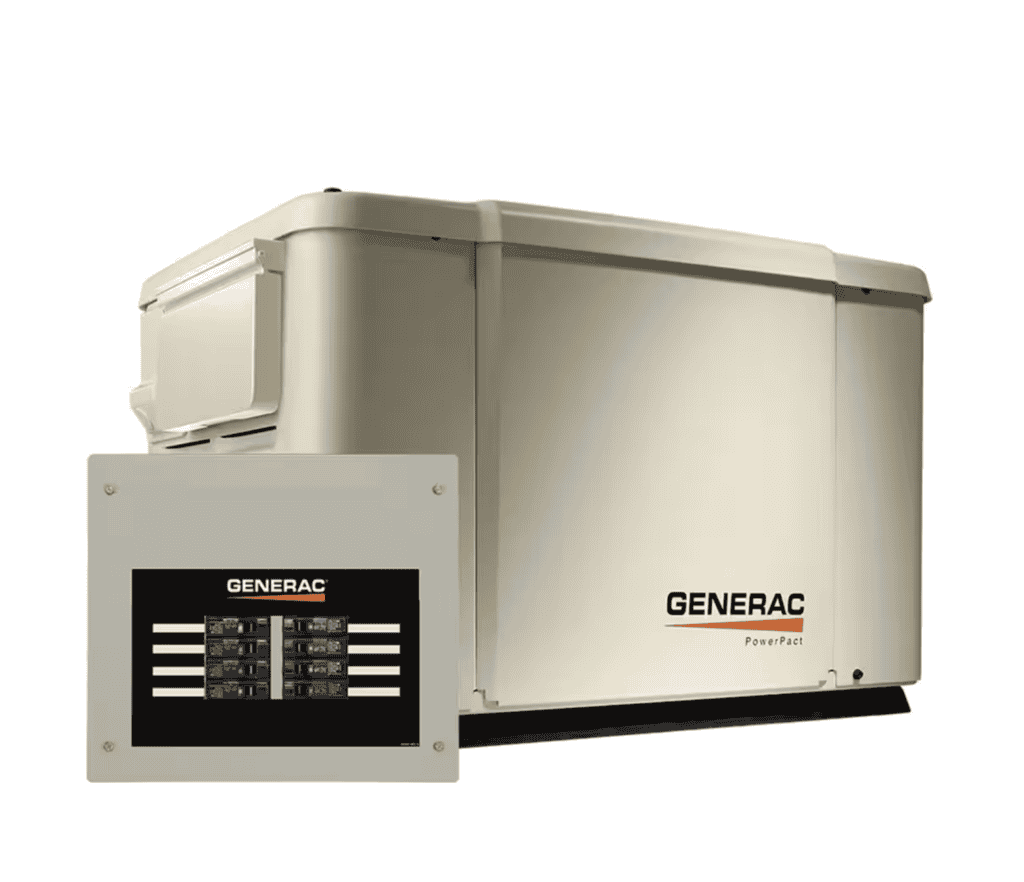
How many amps does a 14kW Generac generator produce?
The Generac Guardian 14kW standby generator has a maximum output of 200A, but it can’t produce that much power continuously. It’s rated for 58.3 continuous amps.
Can a propane generator run a whole house?
Yes and no. It depends on the generator, and it depends on the house. In some cases, even a portable power station would be able to run your entire home, but it’s entirely situational. Do your research to ensure you buy the right product before you’re caught off-guard by the next power outage.
What size breaker does a 14 KW Generac generator have?
The mainline circuit break is 60 amps.
How long will a 500 gallon propane tank run a whole house generator?
Well, the exact timeframe will depend on the power output, the unit in question, and several other factors. Expect to enjoy peace of mind for a week or so with a 500 gallon propane tank before needing to refill.
How many gallons of propane does a 14kW Generac generator use?
Half-load, you can expect this unit to go through about 1.9 gallons of propane in an hour.
Is it cheaper to run a generator on propane or gas?
Upfront, gas generators tend to be cheaper, making them the preferred low-budget option for the occasional peace of mind. However, if you anticipate frequent outages then the lower operating costs of a propane-generator could definitely offer a financial advantage over the gasoline alternative.














